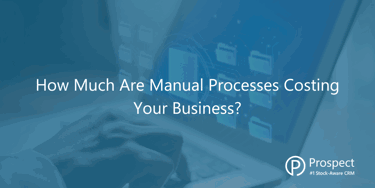
Prospect Launches Access Evo: A New Era of AI in CRM
Read article on Prospect Launches Access Evo: A New Era of AI in CRM
6 Best Practices for Defining & Managing CRM Opportunity Stages
Read article on 6 Best Practices for Defining & Managing CRM Opportunity Stages
Why the Best CRM for the Food Industry Must Support Complex Supply Chains in Modern Manufacturing
Read article on Why the Best CRM for the Food Industry Must Support Complex Supply Chains in Modern Manufacturing
CRM for Construction Industry Suppliers: Integrating Sales, Inventory & Accounting
Read article on CRM for Construction Industry Suppliers: Integrating Sales, Inventory & Accounting
What is Sales & Operations Planning? A Guide to Smarter Business Strategies
Read article on What is Sales & Operations Planning? A Guide to Smarter Business Strategies
CRM Automation: Simplifying B2B Operations
Read article on CRM Automation: Simplifying B2B Operations
After-Sales Supply Chain Management: Why It Matters & How to Get It Right
Read article on After-Sales Supply Chain Management: Why It Matters & How to Get It Right
Why Integrating CRM & Accounting Software is Essential for Small Business Growth
Read article on Why Integrating CRM & Accounting Software is Essential for Small Business Growth
End of Financial Year Survival Guide: 5 Steps for Supply Chains to Get Ahead
Read article on End of Financial Year Survival Guide: 5 Steps for Supply Chains to Get Ahead
Why CRM is the Ultimate Supply Chain Software for the Healthcare & Beauty Wholesale Industry
Read article on Why CRM is the Ultimate Supply Chain Software for the Healthcare & Beauty Wholesale Industry
CRM for Engineering Suppliers: The Power of Integrated Solutions
Read article on CRM for Engineering Suppliers: The Power of Integrated Solutions
Cross-Selling & Upselling: Tips, Strategies & Approaches
Read article on Cross-Selling & Upselling: Tips, Strategies & Approaches
What is a Cloud-based CRM?
Read article on What is a Cloud-based CRM?
How to Extend Your Product Lifecycle
Read article on How to Extend Your Product Lifecycle
Customer Acquisition vs. Customer Retention: Where Should your Efforts Lie?
Read article on Customer Acquisition vs. Customer Retention: Where Should your Efforts Lie?
8 B2B Customer Retention Strategies for Wholesalers, Distributors, & Manufacturers
Read article on 8 B2B Customer Retention Strategies for Wholesalers, Distributors, & Manufacturers
Multi-Channel Sales: Where to Start?
Read article on Multi-Channel Sales: Where to Start?
Top 5 Mistakes Wholesalers, Manufacturers & Distributors Make When Choosing a CRM
Read article on Top 5 Mistakes Wholesalers, Manufacturers & Distributors Make When Choosing a CRM
8 Best Practices for CRM Setup
Read article on 8 Best Practices for CRM SetupFactory Automation – What It Is & How To Implement
Read article on Factory Automation – What It Is & How To Implement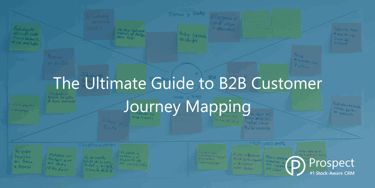
The Ultimate Guide to B2B Customer Journey Mapping
Read article on The Ultimate Guide to B2B Customer Journey Mapping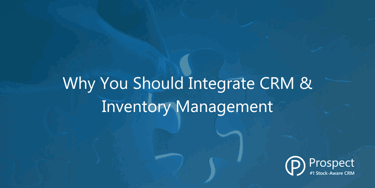
Why You Should Integrate CRM & Inventory Management
Read article on Why You Should Integrate CRM & Inventory Management
The 4 Most Common Sales Blunders (& How to Avoid Them)
Read article on The 4 Most Common Sales Blunders (& How to Avoid Them)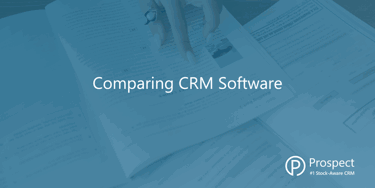
Comparing CRM Software
Read article on Comparing CRM Software
When Should You Implement a CRM?
Read article on When Should You Implement a CRM?
How to Build, Interpret & Action CRM Reports
Read article on How to Build, Interpret & Action CRM Reports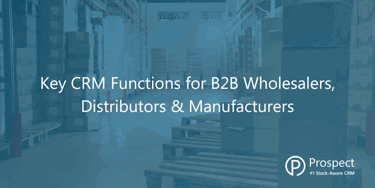
Key CRM Functions for B2B Wholesalers, Manufacturers & Distributors
Read article on Key CRM Functions for B2B Wholesalers, Manufacturers & Distributors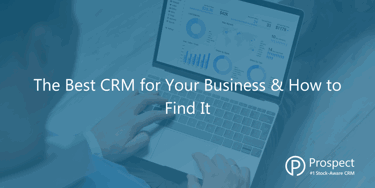
The Best CRM for Your Business & How to Find It
Read article on The Best CRM for Your Business & How to Find It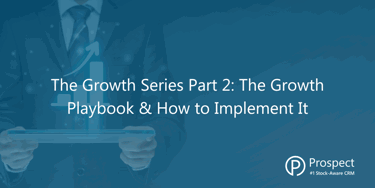
The Growth Series Part 2: The Growth Playbook & How to Implement It
Read article on The Growth Series Part 2: The Growth Playbook & How to Implement It